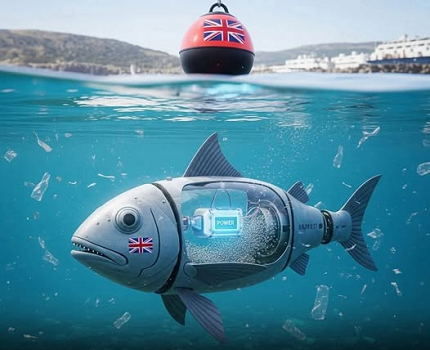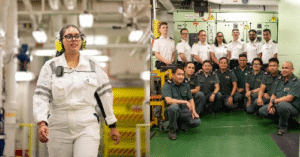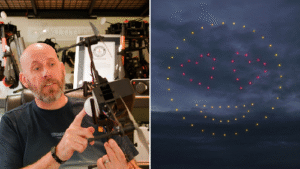A groundbreaking robotic fish has been developed by researchers at the University of Surrey, which aims to tackle the growing problem of ocean plastic pollution. The innovative robot, nicknamed “Gillbert,” is designed to swim through water and filter out microplastics, offering a new solution to a crisis that has become a major threat to marine ecosystems and human health.
The project began as part of the university’s “Natural Robotics Contest,” where students and the public were invited to design bio-inspired robots to solve environmental challenges. The winning concept, submitted by a student, was a fish-shaped device that could effectively collect microplastics. This concept was then brought to life by a team of engineers, led by Dr. Robert Siddall.
Gillbert is approximately the size of a salmon and is 3D-printed with a design that allows it to mimic the movements of a real fish. As it moves through the water, it takes in liquid through its mouth and expels it through a fine-mesh filtration system located in its “gills.” This passive filtering process allows the robot to collect microplastic particles as small as two millimeters, which are then stored in an internal container.
While early reports have sensationalized the technology, claiming the robot can “digest” plastic to power itself, the reality is still in the prototype phase. The current version of Gillbert is powered by conventional batteries. However, researchers are exploring future iterations that could potentially generate energy from organic matter in the water using technologies like microbial fuel cells. This would allow for autonomous, self-sustaining operation, making large-scale deployment feasible.
For now, the project’s success is a testament to the power of biomimicry and public engagement in solving complex problems. By creating a robot that works with, rather than against, the natural environment, the University of Surrey is paving the way for a new generation of eco-friendly robotics aimed at cleaning up our oceans. The collected data and plastics will also provide invaluable information for scientists studying the distribution and impact of marine pollution.







